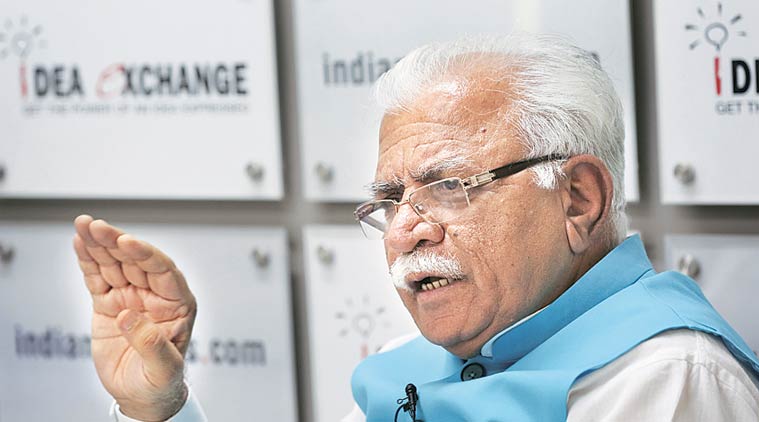Last week, the Haryana Chief Minister Manohar Lal Khattar announced that a person accused of rape and molestation would not get government facilities like state-scholarship, old age pension, pension for the physically disabled persons, driving and arms licenses. He said, “These services will remain suspended till the court announces its verdict in the case. In case the accused is convicted and sentenced, he would not be eligible for these facilities anymore.” Issuing stern warning to the anti-social elements who perpetrate crime against women, Khattar said, “If anyone dares to point fingers at our women, their fingers will be chopped off. We will make arrangements regarding this.” After receiving flak for his over the top statement, he clarified, “The intention of the statement was not a barbarian rule but to punish the accused/culprits.” He also stated that if the accused gets acquitted from the charges then that person can avail the benefits.
However, Khattar’s decision doesn’t make any sense at all. Firstly, there is a difference between the accused and the convicted. Without completion of trial and investigation, how could anyone know whether the accused person is guilty or not? An under-trial is innocent until proven guilty. Here, the state government is talking about treating an accused as a convict which dilutes the whole process of trial. If that is how they treat the accused then there is no point in having a trial. It’s redundant.
Anyone can use these harsher laws to settle their personal scores. Someday like Rohtak sisters, Harleen Kaur and Zaira Wasim can ruin the life of an innocent man.
Arguably, Indian laws are more favorable to women. Section 498A has been grossly misused by Indian women. The courts have themselves admitted it. Contrary to the spirit of Justice which assumes that everyone is innocent until proven guilty, IPC 498A assumes exactly the opposite as it was originally framed. The onus effectively fell on the accused to prove his innocence rather than on the accuser of proving the guilt. In a judgment in 2005, the Supreme Court of India had to say the following on IPC 498A, “As noted above the object is to strike at the roots of dowry menace. But by misuse of the provision a new LEGAL TERRORISM can be unleashed. The provision is intended to be used as a shield and not an assassin’s weapon.” Another bench of the Court observed in 2014 with regards to the same section of the IPC, “the fact that Section 498A is a cognisable and non-bailable offence has lent it a dubious place of pride amongst the provisions that are used as weapons rather than shield by disgruntled wives”. However, now the Supreme Court has taken the bull by its horn and ordered that no automatic arrests were to be made with such complaints and also ordered the setting up of Family Welfare Committees in every district to look into the complaints filed under sec 498A of the Indian Penal Code. The Court made it clear that no arrests were to be made before the Committee filed its brief report about the factual aspects and opinions in the matter. Additionally, such complaints are to be investigated only by a designated Investigating Officer of the area.
If people can be sent to jail without due process, then in Haryana also people will be simply deprived of the benefits. Women protection laws are important but few women grossly misuse these laws to settle their personal scores. The need of the hour is fast-track courts for the faster judicial process of molestation and rape cases rather than populist measures announced by Khattar.
